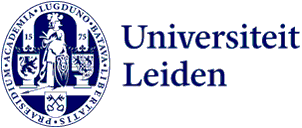
How should we use AI? The Islamic world may have an answer
The secular West is struggling with the rise of AI, but so too is Muslim Southeast Asia. What can we learn from each other? Bart Barendregt, Professor of Anthropology of Digital Diversity, will talk about research into this in his inaugural lecture on Friday 14 April. Everyone is welcome.
Close your eyes and think of Southeast Asia. What do you see? Farmers, rice fields and primitive equipment? Or busy cities with hypermodern technology? Both images are true, says Professor of Anthropology of Digital Diversity Bart Barendregt. ‘Walk in the Singapore metro and you’ll keep on bumping into cleaning robots. And there are drones flying in Malaysia, be it out of sight. In Jakarta in Indonesia, millions of people use the Gojek app, which you can order almost anything with: from taxis to masseurs. But once you leave the city, you soon find yourself in rural areas with no reception and often no electricity.’

Moral panic
It’s this diversity, this variety in people and their relationships with technology that a cultural anthropologist like Barendregt revels in. ‘The dawn of this new technology has all sorts of effects on humans. There is a kind of moral panic – how are we supposed to use it? – along with enthusiasm. I’ve always found that really exciting.’
Barendregt has been studying Islam for his entire career and the emergence of new technology and its influence on Islam has always fascinated him. He has been collecting popular music for decades, for instance, and has hundreds of cassettes and 78 RPM records. He has been researching how modern songs sing about Islamic themes.
It’s easy to see how this led to his current research: AI and Islam. How does AI influence the lives of developers and users? What do they think about the role of AI in the future? What do they hope for? With the aid of a large Dutch Research Council (NWO) grant, Barendregt is looking over the shoulders of people in three Southeast Asian societies (Indonesia, Malaysia and Singapore). He deliberately chose this region because of the many different versions of Islam here, from conservative to modern.
Barendregt’s research is focusing on three ‘sectors’. First, AI education, programmes in which young people learn to develop AI themselves. Second: the edutainment sector. Barendregt is looking, for example, at the behaviour of users of streaming services such as Nurflix, the Islamic version of Netflix. And third: ‘self-discipline’, how apps and databases help users be devout Muslims.
You are researching the relationship between AI and Islam and in your inaugural lecture contrast the Islamic community with the ‘secular West’. Is there anything we secular Westerners can learn from the way Muslims are dealing with the emergence of AI technology?
‘I hope so. Essentially, we all have big questions when it comes to AI. But there may be alternative solutions in unexpected places, or very different questions being asked somewhere in the world about AI. It’s a quiddity of anthropologists to borrow other people’s problems, play with them and look at whether these teach us anything for our own problems.’
How will you manage to look in three sectors in three countries at how Muslims make and use AI in their daily lives?
‘Various PhD students are going to spend six months there. One is hoping to work at the Office of the Mufti in Singapore and to research questions such as: What motivates the staff there? How do they use big data in their everyday work? What ethical problems do they face? How, ideally, could it be used? Another will go on “data walks” with people in Singapore.
‘Other members of the project team are working on a sensitive microphone that picks up AI frequencies. They will then ask participants questions like: Did you know that AI technology is being used here? How does that feel? Can you tell us a bit about that? In short, we are going to ask, in all sorts of different ways: What does AI mean to you?’
Alongside this research you hold the ‘Anthropology of Digital Diversity’ UNESCO chair. What is the aim of this chair?
‘From UNESCO we want to bring representatives of startups that are going to roll out apps together with large Muslim communities and anthropologists. This is to help them speak one another’s language and have an open conversation about AI as a subject. And to give communities the chance to join in the discussion on the development of AI.’
How do you personally see the rise of AI?
‘I’m not that worried. It obviously has its more sinister sides and we have to watch out. AI technology can easily increase existing inequalities and prejudices. But I also firmly believe in human resilience. When the first steam train started running from Amsterdam to Haarlem, people were terrified. Pregnant women weren’t allowed on it at all. But things turned out fine. In the end humans are very ingenious and every invention finds its place. What’s exciting is that this is done in very different ways in different places all around the world.’
Picture: Unsplash
